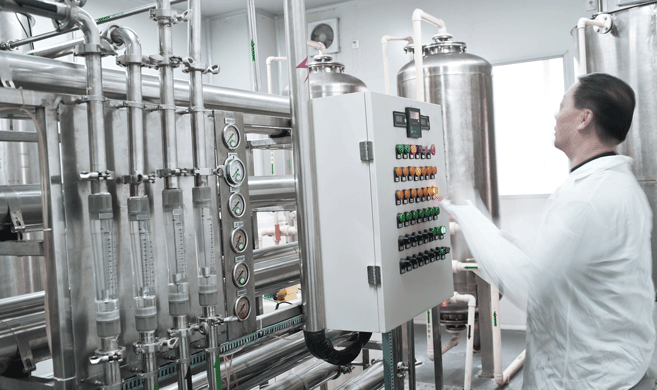The coronavirus crisis exposed America’s and Europe’s overdependence on other countries for cheap medical products. China, for one, manufactures key ingredients in the global supply chain for a range of drugs. The shortages of active pharmaceutical ingredients (APIs), caused by extended factory closures in China and export limitations in India, have driven up the cost of drug manufacture, just as the pandemic sent demand for medicines soaring.
Politicians from across America and much of Europe have raised concerns about the national security implications of sourcing medical supplies from overseas. Medical supply chains are designed for efficiency and price competition, but governments have leaned on corporations to “reshore” operations from China and elsewhere.
Pharmaceutical companies are, largely, opposed to the idea. Reshaping global supply chains could take years and incur significant costs. One way corporations could bring some production back home is through applying a new technology or method to achieve gains in manufacturing performance. This is known as process innovation.
So far, research has focused on product innovation, or the development of new drugs. Our study aims to shed light on the economic impact of process innovation. And we found a positive association between process innovation and sales of APIs for cancer drugs that have gone off patent protection. Process innovation enables corporations to produce APIs in a more efficient way, which means they can lower drug prices. Our findings suggest this also boosts market share.
Process innovation enables corporations to produce active pharmaceutical ingredients (APIs) in a more efficient way, which means they can lower drug prices.
The study has important implications for the pharmaceutical industry and wider society, given the critical role that drugs play in the safeguard of public health. In addition, the sector is a major driver of economic growth and employment. For pharmaceutical firms that incur huge research and development costs to bring a new drug to market and where even among once promising products that receive regulatory approval few become blockbuster hits to provide a return on investment, process (rather than product) innovation can be an important way to ensure future growth.
For pharmaceutical firms that incur huge research and development costs, process (rather than product) innovation can be an important way to ensure future growth.
Indeed, for complex APIs such as the ones considered in our study, manufacturing is widely considered to account for the bulk of drug manufacturing costs. Certainly, this has been the case for the Swiss pharmaceutical corporation Synbias Pharma. Traditionally, the company’s manufacturing process for the key ingredient in Idarubicin had a low yield — the efficiency with which the process could turn input to output through a series of chemical reactions. Through the introduction of an innovative production method the yield reached 30% from 5%. This catapulted Synbias Pharma to become the world market leader for Idarubicin, a generic drug used to treat some types of leukaemia and advanced breast cancer.
However, process innovation is not without risks. The key challenges include ensuring consistent yields, product quality and overall process stability. Yet production plants are complex environments, and the nuances in equipment, procedures and people cannot be fully characterized ahead of time. Therefore, our analysis suggests that it is harder to implement process innovations that are more novel. So, coming up with entirely new manufacturing methods is riskier, but it offers higher potential economic benefit.
Patenting is another critical factor in the success of process innovation. In theory, manufacturing process patents (i.e., patents of new production methods) can help pharmaceutical companies to protect profits by having exclusive access to more efficient production processes. In reality, because patents are publicly available information, they can also provide hints to the competition about a firm’s production methods and encourage an effort to imitate or provide a base for new development. In response, corporations can attempt to develop production methods in a more general way, to throw rivals off the scent. The degree of difficulty for competitors to copy a similar process without patent infringement is known as “scope”. Broader scope would make it easier for companies to maintain exclusive access to innovative production methods.
Indeed, our findings show that firms with patented process innovations enjoy overall API sales that are substantially higher relative to non-process-innovative competitors. This is important, because legislation has considerably lowered the barriers to market entry for generic drug makers. In that context, pharma companies can protect their profitability by making (and patenting) process improvements to cut costs.
The degree of success will depend on the qualitative characteristics of the resulting innovation and the nature of the API being produced.
Nevertheless, our findings also suggest that the degree of success will depend on the qualitative characteristics of the resulting innovation and the nature of the API being produced. To revamp manufacturing processes, companies choose inputs such as solvents and operating conditions like temperature and pressure. How these production attributes interact with each other changes across APIs, where sometimes production risks and costs are very sensitive to small changes. When this is the case, identifying highly novel process innovations can be trickier for firms but our results suggest that the potential payoffs justify the required search efforts. For APIs where the interaction between production attributes is more predictable, our analysis indicates that innovating firms should make an extra effort to patent their discoveries in a sufficiently broad way so as to better fend off competition.
Overall, despite the challenges associated with identifying, developing and deploying them, exclusive access to manufacturing process innovations carries important economic benefits for pharma firms in the form of higher sales. Our analysis suggests that the rewards outweigh the risks.









